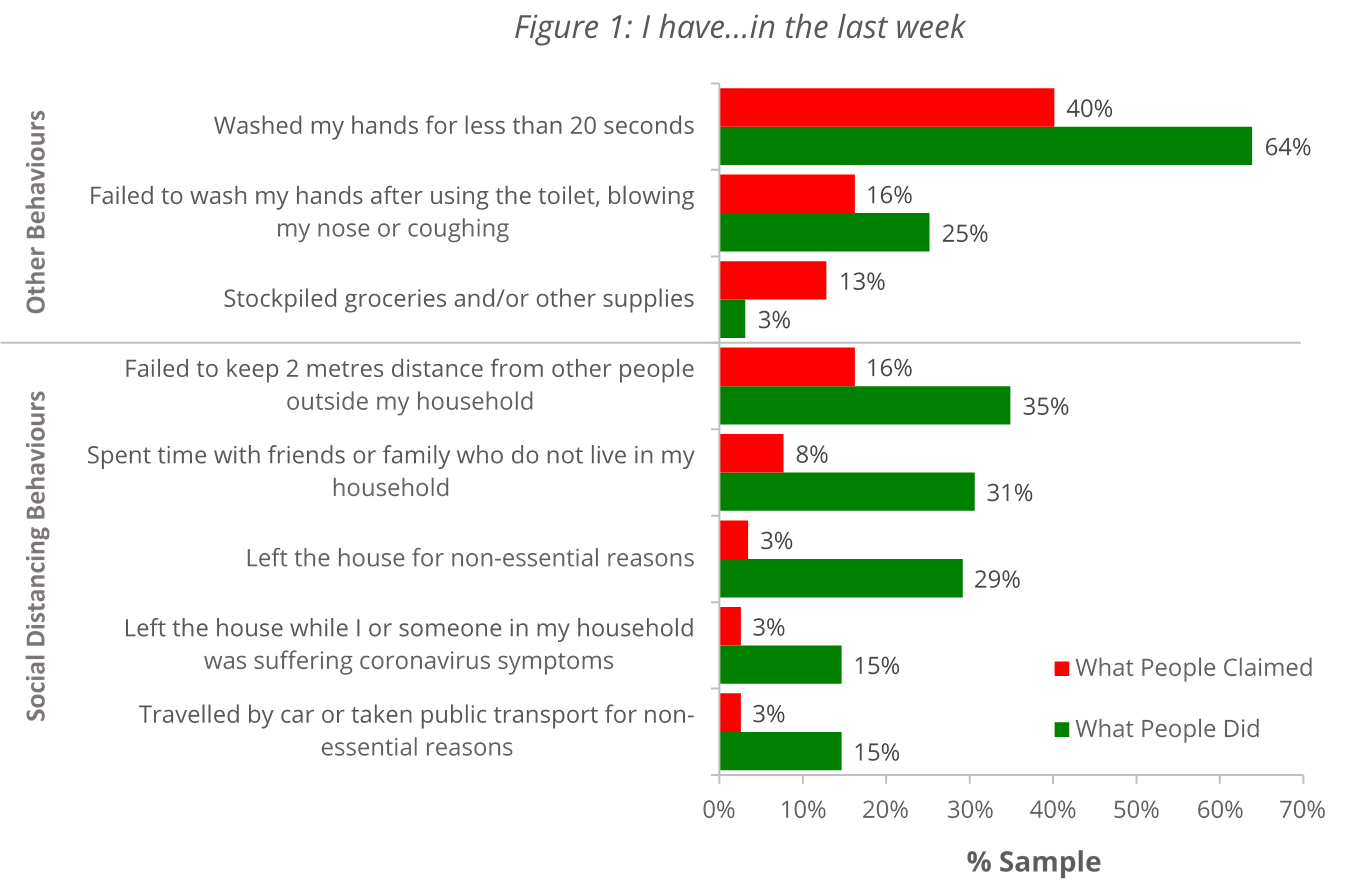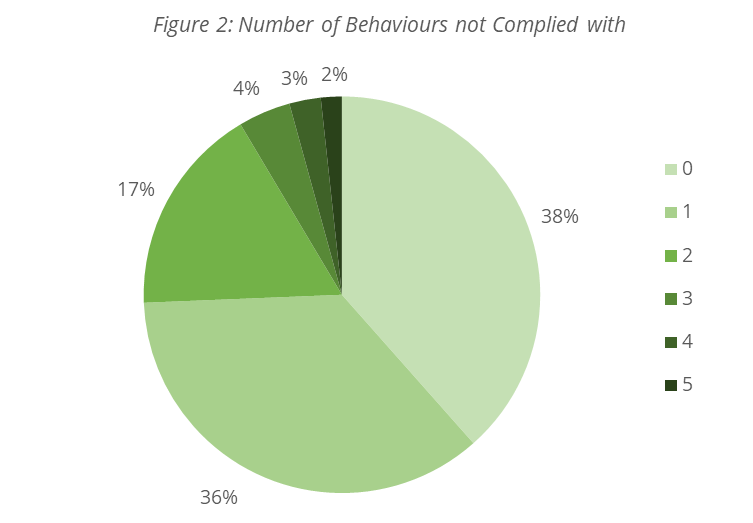Chances Are: Complying with Government Lockdown Advice
Posted: 07/05/2020


“One in three Brits failed to comply with 2 metre social distancing rules, but strong social norms mean such behaviours are vastly under-reported by surveys”
The immediate and dramatic change in people’s behaviour in response to the coronavirus lockdown has been incredible. However, we wondered just how closely the British public were heeding Government advice. Specifically, we wanted to find out the extent of any lapses in compliance and if people were willing to confess this in a survey.

People often claim to behave in ways that conform with societal norms and values, but in reality claims don’t always match up with actions. This is why we employ the unmatched count technique (UCT) to determine the true prevalence when asking about sensitive or embarrassing behaviours. UCT provides the respondent with anonymity and therefore elicits more honest responses than direct questioning.
When asked directly, 62% of a nationally representative sample admit to failing to comply with Government lockdown advice, with most not washing their hands for a full 20 seconds (40%) or as frequently as they should (16%), and not keeping regulation distance from others (16%; see Figure 1). A mere 3% admitted to non-essential trips or breaking self-quarantine, when surveyed three weeks into the lockdown.
As predicted, the UCT method revealed people are ashamed to admit failures to comply, which demonstrates a strong social pressure to adhere. Social distancing measures have most shame attached, with the biggest gaps in claimed versus actual behaviour for non-essential or risky trips and spending time with people outside the household. We found in reality 29% have left their house for non-essential reasons, 15% left the house while they or a household member was experiencing Coronavirus symptoms, and 15% have travelled unnecessarily. On average, Brits confess to slipping up on one behaviour in the list, but the UCT reveals this is actually closer to 2.2.
In contrast, stockpiling goods appears to be overreported. This is further evidence of a desire to fit in with social norms, driven by the numerous news articles reporting high levels of panic-buying. The reality is that supermarket regulations and stock availability have minimised the opportunity to stockpile.

Looking at the total number of recommended behaviours Brits are struggling to follow shows most aspire to be vigilant in their compliance (see Figure 2). Just over a quarter admit to disregarding 2 or more, while only 5% have slipped up on at least half of the behaviours in the last week.
The unprecedented public response to the lockdown in rapidly shifting behaviour is to be applauded. However, the strong social norm of following the lockdown rules has rendered traditional survey methods ineffectual for measuring the extent of compliance. And, the longer the lockdown endures, the more likely attitudes to compliance will relax, increasing the gap between claimed and actual behaviours.